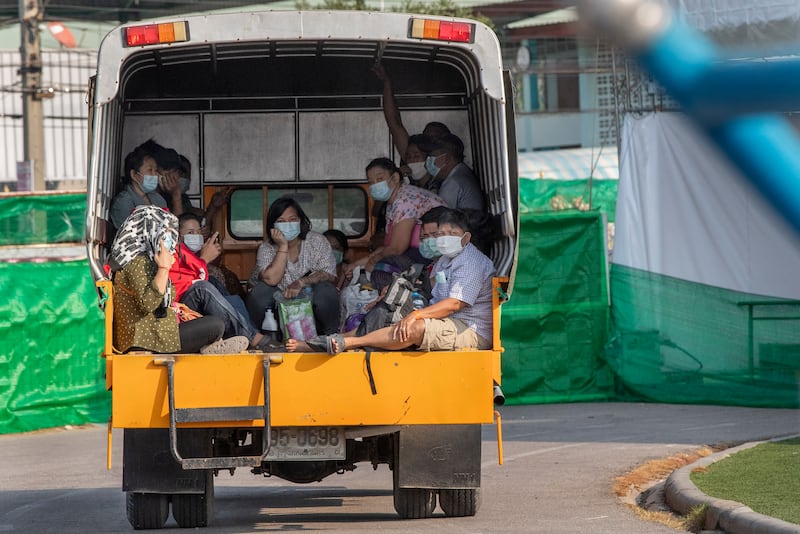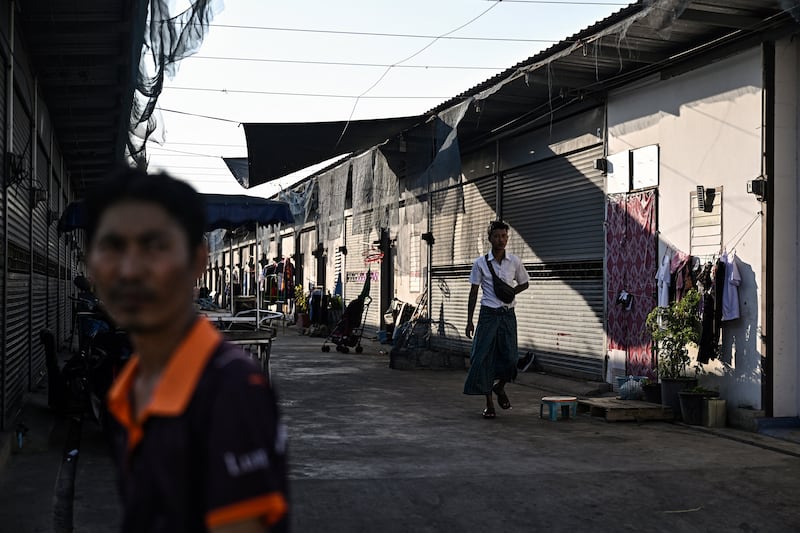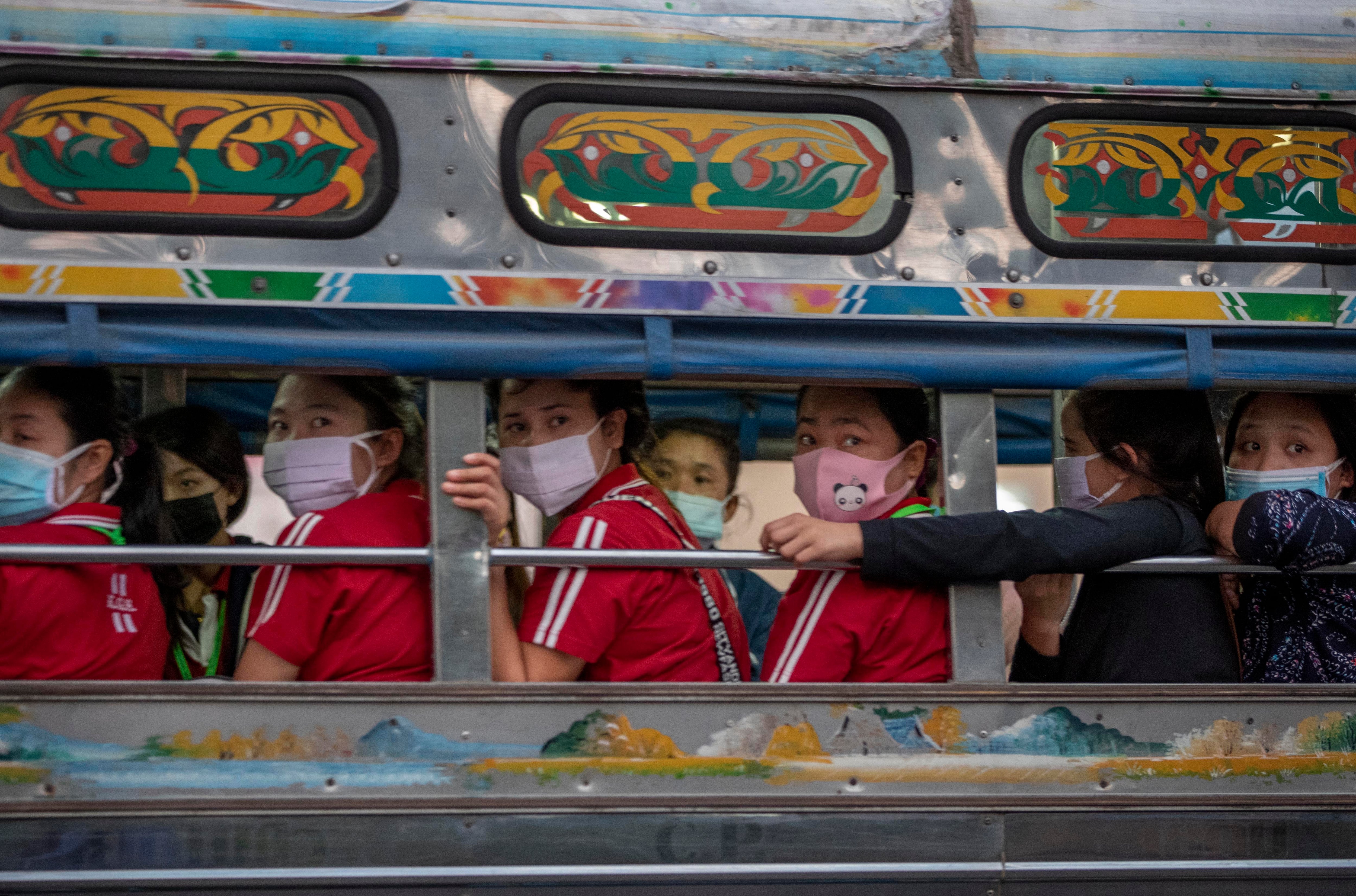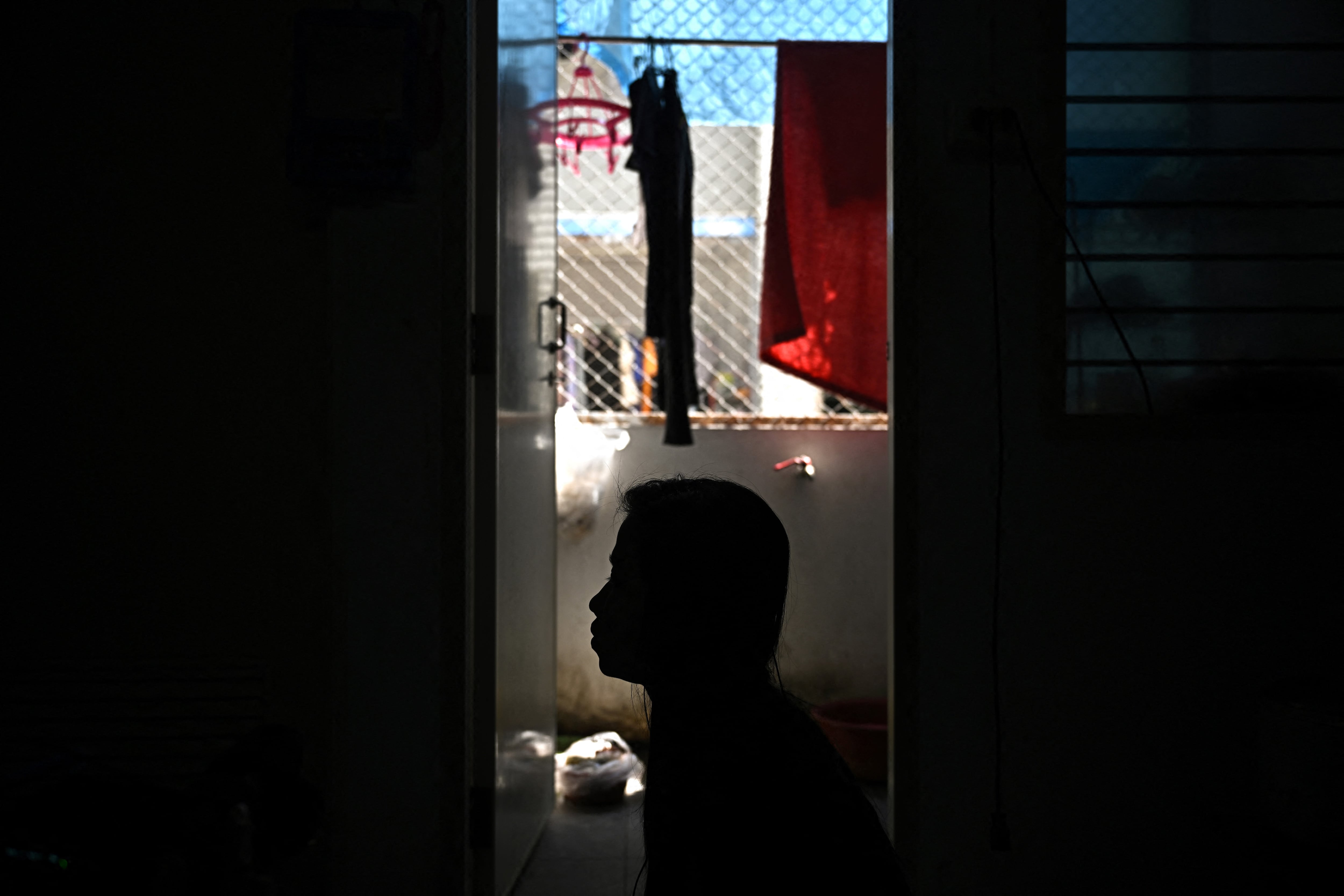MAE SOT, Thailand – When Shwe Lin heard that an auditing firm was visiting the garment factory where she worked in the Thai border town of Mae Sot to inspect labor conditions there, she found it hard to feel hopeful.
The factory prepared pre-selected workers and exchanged rehearsed questions and answers with the auditing company, said the Burmese migrant worker, who requested an alias for her safety. She told Radio Free Asia that workers were forced to lie about factory policies about sick days, holidays and overtime. They’re also pressured to say that their employer pays for their legal documents such as their certificate of identity to stay in Thailand, work permit and health certificate when workers actually pay for that themselves – an outlay of about 5,500 Thai baht (US$160).
“Most of the information [given to the auditing company] here is incorrect,” said Shwe Lin, an older, outspoken garment worker who has been in Mae Sot for more than 20 years and is trusted by her coworkers.

In many parts of Southeast Asia, where Western brands use third-party suppliers to produce garments and other goods, they rely on private “social auditing” companies to provide assessments on whether labor practices are ethical and socially responsible. This is in part a response to public pressure on brands to uphold human rights and environmental standards in their supply chain.
The exact number of such auditors operating in Thailand is unclear, but the Office of the Securities and Exchange Commission of Thailand lists 30 of them.
Some labor advocates, however, contend that audits can be self-serving and overlook harsh conditions faced by workers.
“It’s essentially the industry policing itself,” said Dave Welsh, Myanmar country director of labor rights group, Solidarity Center.
“Social auditing companies do not work on behalf of unions, they work on behalf of brands and businesses covering up situations that very often, in my experience, are obviously illegal,” he told RFA.
Conflicts of interest
A 2022 report from Human Rights Watch found that social audits, while growing increasingly popular, were “riddled with conflicts of interest, loopholes, and other problems that render it an inadequate tool.”
Many of the workers in garment factories in Thailand are migrants from neighboring countries. In 2021, migrants made up about 1.2 million of garment workers and the number has likely risen significantly in the past four years. The influx of migrants into Thailand has only grown. According to the International Organization for Migration, 1.3 million Burmese entered the country in 2024, fleeing violent attacks from Myanmar’s military, forced conscription and rising joblessness.
RFA has previously reported on factories hiring undocumented workers, paying them illegally low wages, keeping workers indebted and providing grossly inadequate housing or facilities. Activists say that these are the kind of abusive practices that should come to light in audits.
Intertek Testing Services Thailand, an auditing firm, has faced criticism from campaign and advocacy groups like U.K.-based Labour Behind the Label, which focuses on the clothing industry, and claims the company “allegedly failed to identify serious issues” at VK Garments factory in Mae Sot up until 2020, when workers took the factory to court in Thailand.
More than 130 former employees won their case against VK Garments for unpaid overtime and severance compensation, but say the amount awarded to them was inadequate. So they are appealing their case against the factory in Thailand’s Supreme Court.
The workers allege that they endured near-100 hour work weeks, unsafe housing where one employee’s child was raped, and were forced to purchase their own equipment, like lightbulbs, to sew at their stations after dark.

According to an associate lawyer for the workers, who requested anonymity to avoid potential retaliation from the accused parties, an audit conducted by Intertek was used as evidence in a 2020 court case to support VK Garments’ denial of any wrongdoing.
The Thailand office of Intertek Testing Services did not respond to an RFA request for comment. Calls to its U.K. office went unanswered.
Other companies have faced similar controversy. Sportswear giant Nike has been accused by both investors and human rights groups of hiding behind its audits as well.
In 2020, over 3,300 workers Thailand’s Hong Seng Knitting factory in Bangkok, which supplies Nike, were allegedly coerced into signing documentation stating they would voluntarily forgo legal wages, according to labor rights monitoring group Workers Rights Consortium. The workers allegedly faced retaliation if they did not. As of 2024, workers were collectively owed more than US $900,000, according to the group.
Nike cited a report done by auditing company Elevate to back up its position of no wrongdoing, but has not released the report to the public, the Consortium said in an investigation released in 2024.
Nike did not respond to RFA attempts to seek comment, nor did LRQA, which acquired Elevate in 2022.
In a 2021 report, the Business and Human Rights Resource Center, a U.K.-based non-profit, cited dozens of audits across Vietnam, Pakistan and Malaysia that similarly failed to detect safety hazards, forced labor and other violations.
Failings are routine
But workers like Shwe Lin and Arkar Kyaw, who have worked at garment factories in Mae Sot for more than three years, tell RFA that failings like this are routine.
Neither have ever been selected by management to speak with an auditor despite being outspoken about violations. They say they have seen auditors prevented from interviewing non-approved workers.
Aruna Kashyap, an associate director on corporate accountability at the Human Rights Watch, believes stricter due diligence laws may be one way to crack down corporate accountability in their supply chains.
“If governments introduce laws that regulate how businesses should conduct due diligence and how the entire system is scrutinized, then some of these problems will start to surface more,” Kashyap told RFA.
The European Union, for example, introduced a directive last year that would require companies with more than 1,000 employees and over 450 million euros in worldwide revenue to identify and mitigate the “adverse human rights and environmental” impacts of themselves or their partners, which may include suppliers. It may also require them to get contractual assurances from partners, such as factories in other parts of the world, to ensure human rights are being protected in labor practices.
European companies are among the major clients of Thailand’s garment factories, collaborating alongside American and Asian brands to source apparel and accessories from the region.
“Hopefully that level of scrutiny will change what not just brands and suppliers are doing, but the auditing industry as well,” Kashyap said.
Edited by Taejun Kang, Malcolm Foster and Mat Pennington.


